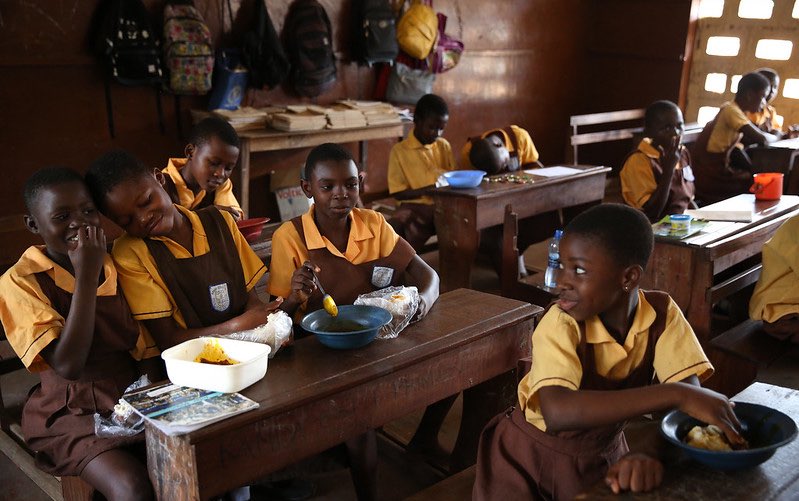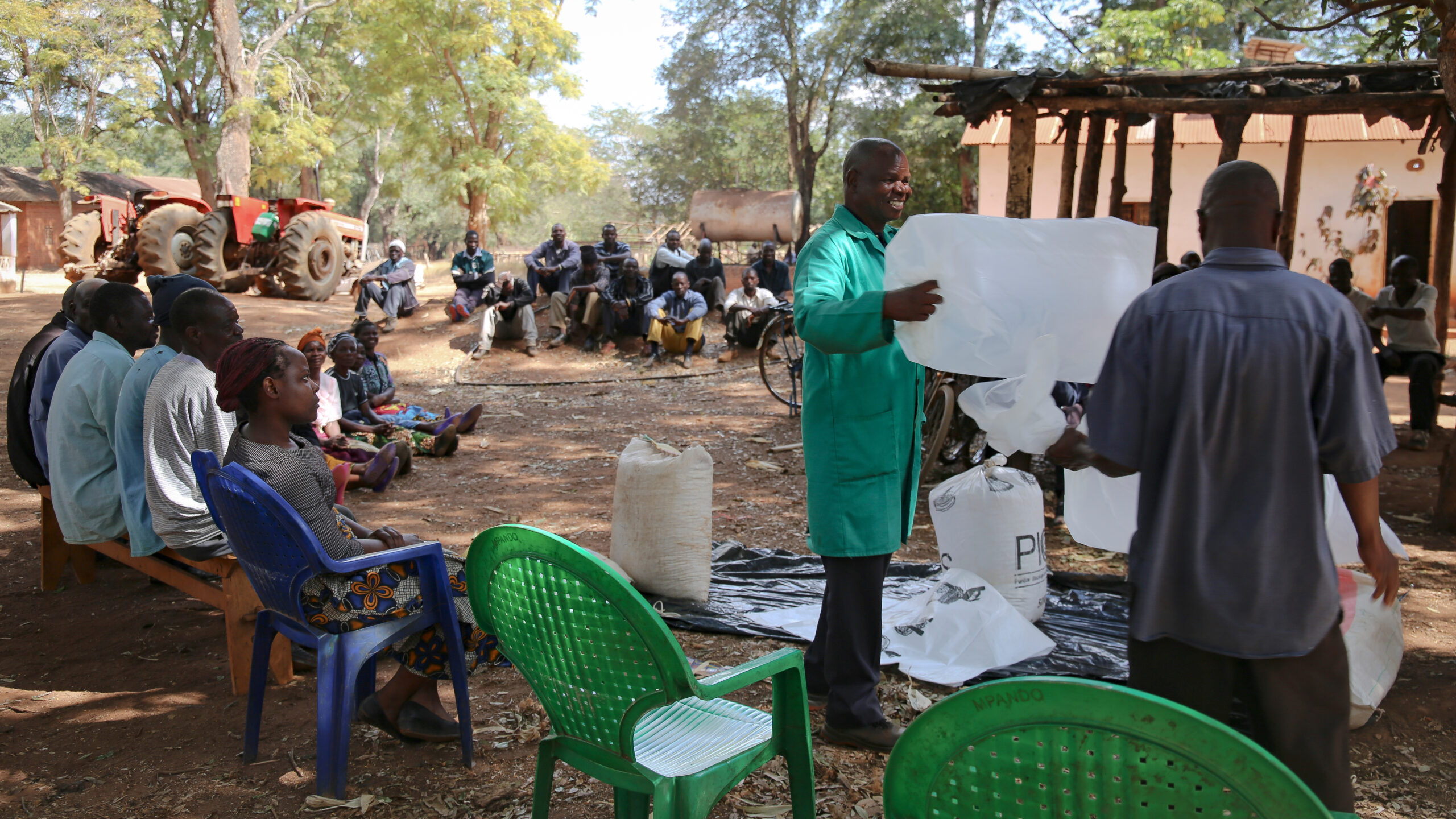Around the world, 388 million children participate in school meal programs, according to the World Food Programme. In Africa, governments have prioritized these programs as a key safety net; in 2016, the annual Africa Day of School Feeding (March 1) was launched to promote them across the continent.
Extensive research has shown that providing meals can improve children’s school participation, as well as their physical and psycho-social health, with most benefits accruing to more disadvantaged children. However, evidence on their effectiveness on learning is more limited—focused mostly on small-scale experiments run by NGOs—and has mixed results.
Our recent evaluation of Ghana’s national school meal program provides insight into this question, finding the program has positive impacts on standarized test scores, especially for the poorest children and for girls.
In this study, published in the Journal of Human Resources, a randomized control trial was implemented across all 10 regions of Ghana in collaboration with the government, covering 2,869 school-aged children. Communities were randomized to either a control group without intervention, or a treatment group providing the reformed national school feeding program, which provides one hot meal a day in public schools serving children aged 5-15.
The study found a positive effect on aggregate learning, math, and literacy scores, which rose by an average of about 0.15 standard deviations. There was a larger positive effect on certain subgroups as well, with girls’ scores increasing by about 0.25 standard deviations, and those of children from northern regions or households below the national poverty line increasing by about 0.30 standard deviations.
A 4% increase in enrollment was also found among these subgroups, further solidifying the evidence of a positive impact of school lunch programs on attendance. In a related study, young children, girls, and children living below the poverty line were also found to experience increased linear growth, which is typically a strong indicator of health and cognitive development.
The implications of these findings are far-reaching, as the low learning challenges Ghana faces are comparable to those of other low- to middle-income countries. According to a 2018 World Bank report, more than 80% and 70% of Ghana’s Grade 2 and Grade 4 students, respectively, could not read a single word or perform a two-digit subtraction.
In many low-income countries, disparities in academic achievement are significant, with girls, children of lower socioeconomic status, and those in rural households lagging behind. School meal programs can help to reduce this disparity, with potentially long-term effects on children’s health, incomes, and the transmission of poverty to the next generation. These findings suggest that governments facing difficult choices on spending prioritize school feeding programs as an effective social protection intervention. Further research into the cost-effectiveness and intergenerational effects of such interventions should build upon this evidence to further strengthen the case for implementing school feeding programs at larger scales.
Elisabetta Aurino is a Research Fellow at the Department of Economics and Public Policy, Imperial College London; Aulo Gelli is a Senior Research Fellow with IFPRI’s Poverty, Health, and Nutrition Division (PHND); Clement Adamba is a Research Fellow at the School of Education and Leadership, University of Ghana; Isaac Osei-Akoto is a Senior Research Fellow at the Institute of Statistical, Social, and Economic Research, University of Ghana; Harold Alderman is a PHND Senior Research Fellow; Honor Dearlove is an IFPRI Communications Intern.
This study was supported by the Partnership for Child Development through grants from the Bill & Melinda Gates Foundation and Dubai Cares. We also acknowledge support from the IFPRI-led CGIAR Research Program on Agriculture for Nutrition and Health (A4NH).







